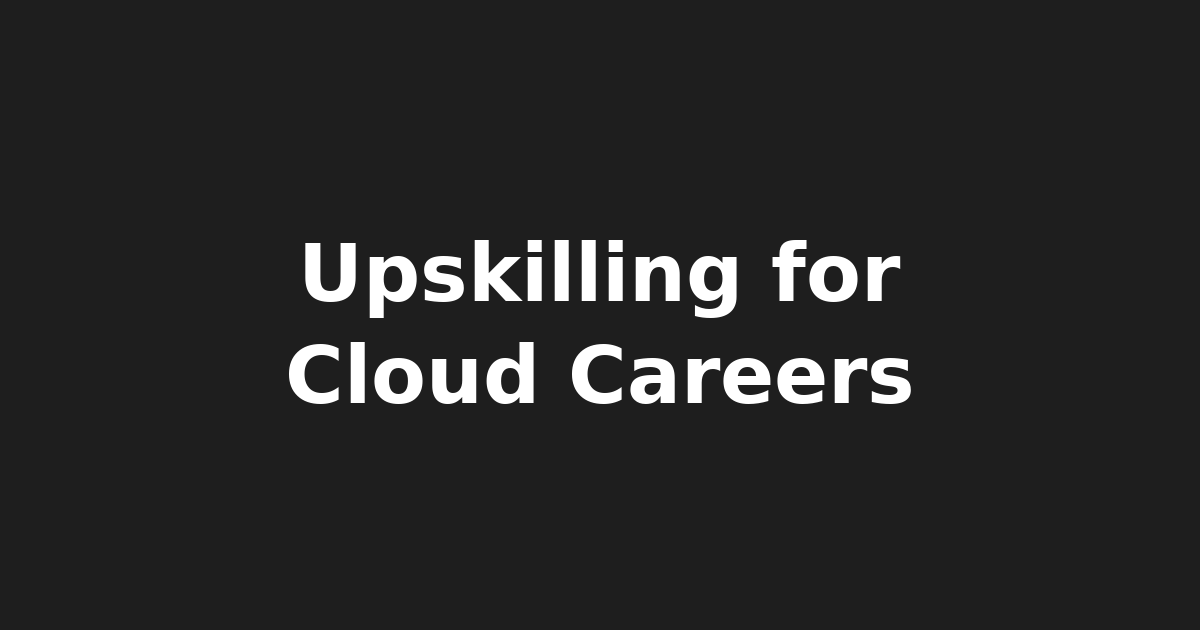Upskilling for Remote DevOps: How to Thrive in a Cloud Native Workforce

The Future of DevOps and Cloud Native Development: How to Upskill for a Remote Workforce
As the remote work trend continues to gain momentum, companies are looking for professionals who can effectively collaborate with distributed teams, leverage cloud-native technologies, and adopt agile development methodologies. This shift is driven by the increasing demand for cloud computing, DevOps, and microservices architecture.
The Rise of Cloud Computing
With more organizations moving their infrastructure to the cloud, there is a growing need for developers and IT professionals who can design, deploy, and manage cloud-based applications. According to GitHub's State of DevOps report 2025, 80% of companies are using cloud computing platforms such as AWS, Azure, or Google Cloud.
Cloud Native Technologies
To upskill for these roles, developers and IT professionals are focusing on acquiring skills in cloud-native technologies such as:
- AWS: With the latest version of AWS Cloud Development Kit (CDK) 3.1.0, developers can build scalable and secure cloud applications.
- Azure: Azure DevOps 2025 provides a comprehensive platform for teams to plan, code, test, and deploy their applications.
- Google Cloud: Google Cloud SDK 270 is the latest version of the SDK, which provides a set of tools for building, deploying, and managing cloud-based applications.
The Importance of Containerization
Containerization has become an essential skill for developers and IT professionals. With the latest version of Docker 5.13.0, developers can create lightweight and portable container images that can be easily deployed to any environment.
Containerization Benefits
- Improved security: Containerization provides a secure way to isolate applications from each other and from the host machine.
- Increased efficiency: Containerization reduces the overhead associated with creating virtual machines.
- Faster deployment: Containerization enables fast and efficient deployment of applications.
Serverless Computing
Serverless computing is another trend that has gained significant traction in recent years. With the latest version of AWS Lambda 2.4.0, developers can build scalable and event-driven serverless applications without worrying about server management.
Serverless Computing Benefits
- Reduced costs: Serverless computing eliminates the need for server maintenance and scaling.
- Increased flexibility: Serverless computing enables fast and efficient deployment of applications.
- Improved security: Serverless computing provides a secure way to isolate applications from each other and from the host machine.
CI/CD Pipelines
CI/CD pipelines are essential for automating testing, building, and deploying applications. With the latest version of GitLab CI/CD 14.3.0, developers can create automated pipelines that integrate with various tools and services.
CI/CD Pipeline Benefits
- Improved efficiency: CI/CD pipelines automate testing, building, and deployment, reducing the time spent on these tasks.
- Increased reliability: CI/CD pipelines ensure that applications are thoroughly tested before deployment.
- Faster deployment: CI/CD pipelines enable fast and efficient deployment of applications.
Agile Development Methodologies
Agile development methodologies such as Scrum and Kanban have become essential for remote teams. With the latest version of Scrum 2025, developers can create comprehensive project plans that prioritize team collaboration and customer satisfaction.
Agile Development Benefits
- Improved team collaboration: Agile development methodologies emphasize teamwork and communication.
- Increased efficiency: Agile development methodologies provide a framework for streamlining processes and improving productivity.
- Faster deployment: Agile development methodologies enable fast and efficient deployment of applications.
Conclusion
The future of DevOps and cloud native development is all about collaboration, agility, and innovation. By acquiring skills in cloud-native technologies, containerization, serverless computing, CI/CD pipelines, and agile development methodologies, developers and IT professionals can position themselves for success in a remote work environment. Stay up-to-date with the latest industry trends and best practices to remain competitive in the job market.
References:
- GitHub's State of DevOps report 2025
- AWS's 2022 Future of Work report
- Red Hat's State of DevOps survey
Additional Resources:
- Cloud Development Kit (CDK) - https://aws.amazon.com/cdk/
- Azure DevOps - https://docs.microsoft.com/en-us/azure/devops
- Google Cloud SDK - https://cloud.google.com/sdk
- Docker - https://www.docker.com/
- AWS Lambda - https://aws.amazon.com/lambda/
- GitLab CI/CD - https://about.gitlab.com/software-ci/
- Scrum 2025 - https://www.scrum.org/
